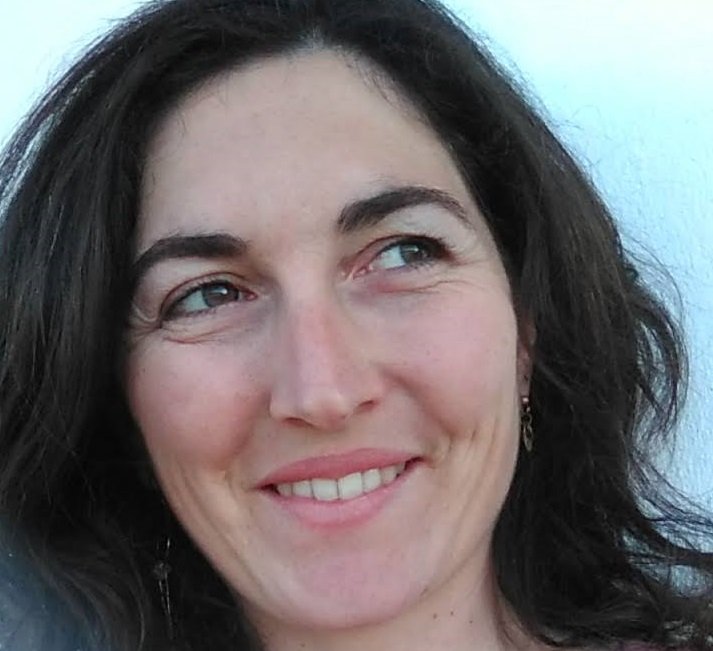“We need people from different fields and do in Basque what has been done in other languages”

How does a student of Basque philology come to investigate certain brain pathologies? There may be several paths; Marie Pourquié Bidegain has taken his own and has shown that interdisciplinarity and collaboration are necessary and productive.
In fact, he investigates in Psicolingüística: "I especially analyze the linguistic pathologies, their manifestation in Basque, but also in French and Spanish. In fact, Euskaldunes are bilingual, taking into account the peculiarities of each language and comparing them with each other to analyze pathologies and develop evaluation tools."
As each language has its own structure, Pourquié explained that the tools must also be structured according to each language: "That is why linguists of different languages, psychologists or neurologists who have researched pathologies in these languages and statics are necessary... People from different fields are needed and what has been done in other languages is also done in Basque."
Pourquié began studying Basque Philology in Baiona. After two years of experience, he moved to Vitoria, where he met at the faculty Professor Xabier Artiagoitia Beaskoetxea. He told them about aphasia. "He explained that these were linguistic problems that occurred as a result of a brain injury, which indicated that there was something dedicated to the language in the brain and that, when this is damaged, the language is damaged and not other capabilities."
Pourquié knew from childhood the word Aphasia: his father had it because of an accident. When he heard from his teacher, he decided he wanted to investigate: "I wanted to know why language is harmed only, when general intelligence is not harmed. And I was also clear that I wanted to study that in Basque, because I also had an interest in Basque grammar."
From Philology to Neuropsychology
Then he began to look at what he had done in Euskal Herria. He found "very few things." "But I saw that there are studies in France like Sciences du langage. They seemed interesting to me and I left Basque Philology to study Language Sciences, especially because I still wanted to study Psycholinguistics, aphasia and linguistic pathology."
Therefore, he contacted people from this field such as Itziar Laka Mugarza, of the UPV/EHU and Beñat Oihartzabal, Bidegorri de Baiona, who had completed his studies in Paris. Aware of this, Pourquié decides to travel to Paris, where he meets Professor George Rebuschi. He says he was lucky because he wanted to study linguistic competence in Basque and feared that in Paris he would move away from Basque. However, thanks to Rebuschi he had the opportunity to do a work on the Basque language.
"I did a job on ergative, but I still didn't work on pathologies," he recalled. For this, he turned to an expert in the field: Jean-Luc Nespoulous, in Toulouse (France). "It is true that this man has worked a lot on aphasia and I wrote to him, but with fear, because until then he had worked in Linguistics. I did not study Neurosciences or Medicine… But he replied that to be calm it is necessary to have knowledge of Linguistics to analyze the pathologies of language".
Thus, he decided to do a master's degree in Tolosa and Nespoulous proposed to him to analyze the manifestation of agramatic aphasia in Basque. : "I was very happy because in the end I managed to link my two themes: the analysis of Basque and linguistic pathology".
He had not done much, and began with an article by Itziar Laka and Lore Erriondo Korostola; Erriondo was the first bilingual tool to analyze Basque aphasia. He then contacted the speech therapists or orthophonists. In fact, one of his friends, Juana Itzaina, is the Malharin orthophone, thanks to which he met a patient. He worked with him and did his thesis.
Looking forward
He then went to Montreal (Québec, Canada) for his postdoctoral degree and participated in BCBL (San Sebastian). He now works as a researcher at the Iker Center on several lines. He is studying the creation of a school of speech therapy in Euskal Herria, since there is none. He also works on the development of language analysis tools. Among other things, he developed a tool in three languages: Basque, French and Spanish, to analyze the language in children and adults with and without linguistic problems.
In addition, Amaia Munarriz collaborates in a European project with Ibarrola (UPV/EHU), linked to a tool to analyze aphasia in Basque. And finally, Marijo Ezeizabarrena Segurola (UPV/EHU) and a group of orthophonists from the north, have a project to know the linguistic development typical of Basque children. Pourquié highlights one of the peculiarities of this last project: "The research is participatory and we work with the people and this test co-build in collaboration with the orthophonists."
He has not stopped studying. For example, the Ikerbasque Congress plans to attend conferences and workshops on topics as diverse as medicine and language, and copyright. Again, it is clear that it is very useful to unite different disciplines.
Born in Baiona in 1982. She holds a degree in Basque Philology (Bayona and Vitoria) and a degree in Language Sciences and a Master's degree (Paris). He then specialized in neuropsychology and aphasiology, completing a master's degree in research and doctorate at the University of Le Mirail (Toulouse, France). He has subsequently completed a postdoctoral degree at the Montreal School of Orthophony and the BCBL research centres. He currently works as a researcher at the Iker Center and participates in projects from other institutions and groups in Euskal Herria, Europe and outside Europe.
Buletina
Bidali zure helbide elektronikoa eta jaso asteroko buletina zure sarrera-ontzian









